The U.S. government is investigating Tesla’s self-driving systems, including Autopilot and Full Self-Driving, over potential safety risks following a series of accidents
The U.S. government has launched a comprehensive investigation into Elon Musk’s Tesla, the electric vehicle (EV), over potential safety concerns related to its self-driving systems. The probe is focused on Tesla’s Autopilot and Full Self-Driving (FSD) technologies, which have come under increasing scrutiny following a series of accidents involving Tesla vehicles.
The National Highway Traffic Safety Administration (NHTSA) is spearheading the investigation, which aims to determine whether Tesla’s advanced driver assistance systems (ADAS) are adequately safe for public use. The investigation comes amid growing concerns over the company’s approach to autonomous driving technology and its potential risks on American roads.
Tesla’s Autopilot and Full Self-Driving Technology
Elon Musk’s Tesla’s Autopilot and Full Self-Driving systems have been marketed as cutting-edge technologies designed to enhance road safety by reducing driver error. Autopilot, which is included in all Tesla models, offers features such as lane-keeping assistance and adaptive cruise control. The Full Self-Driving package, available as an upgrade, adds more advanced functions, such as automated lane changes, navigating on highways, and parking assistance.
However, despite these features, Tesla has faced criticism for what some claim is the misleading branding of its systems. Critics argue that terms like “Autopilot” and “Full Self-Driving” give drivers a false sense of security, leading them to overestimate the vehicle’s capabilities. In reality, Tesla’s systems still require active human supervision, and drivers must be ready to take control at any moment.
Series of Accidents Raise Alarms
The NHTSA’s decision to launch the probe follows a series of accidents involving Tesla vehicles equipped with Autopilot or Full Self-Driving. Since 2016, there have been multiple crashes where Tesla’s ADAS was either active or suspected to be active at the time of the incident. Some of these accidents have resulted in fatalities, prompting calls for more stringent regulations and oversight.
One of the most high-profile incidents occurred in 2021, when a Tesla Model S crashed into a stationary vehicle, killing two passengers. The incident raised questions about the effectiveness of Tesla’s collision avoidance systems and whether the driver was relying too heavily on the self-driving technology.
As of 2024, NHTSA has recorded over a dozen investigations into Tesla-related accidents involving Autopilot or FSD. The government agency is particularly concerned about how the system handles emergency vehicles on the road, after reports of several crashes where Teslas collided with stopped police or fire department vehicles.
Government’s Safety Investigation
The U.S. government’s investigation seeks to assess whether Tesla’s self-driving systems pose an unreasonable risk to public safety. The probe will examine both the software used in Tesla’s Autopilot and Full Self-Driving features and the company’s safety practices. Investigators will look into Tesla’s driver monitoring systems, which are designed to ensure that drivers remain attentive while using the technology.
In particular, NHTSA is focusing on how well the system detects obstacles and reacts to sudden changes in traffic conditions. The agency is also reviewing Tesla’s updates to its software, as the company regularly pushes over-the-air updates that alter the functionality of its self-driving systems. NHTSA officials are concerned that these updates might not always be thoroughly tested before they are rolled out to customers.
Additionally, the probe will evaluate Tesla’s communication with its customers, including whether the company adequately warns drivers about the limitations of Autopilot and FSD. If the investigation finds that Tesla’s systems pose a safety risk, the government could require the company to recall vehicles or make significant modifications to its technology.
Tesla’s Response to the Investigation
Elon Musk’s Tesla has not released an official statement addressing the probe but has consistently defended the safety of its self-driving systems. Musk has repeatedly argued that Autopilot and Full Self-Driving are safer than human drivers when used correctly. Musk has also emphasized that Tesla’s data shows fewer accidents per mile with Autopilot engaged compared to vehicles driven manually.
In previous interviews, Musk has been vocal about his belief in the transformative potential of autonomous vehicles, predicting that fully self-driving cars will become the norm within a few years. He has also dismissed concerns over the branding of Tesla’s systems, arguing that customers are well-informed about the need for active supervision while using the technology.
However, Tesla’s stance has done little to quell criticism from safety advocates and regulators who argue that the company’s messaging encourages driver complacency. With NHTSA’s investigation ongoing, Tesla may face increased regulatory pressure to enhance its safety protocols and adjust its marketing strategies.
The Future of Tesla’s Self-Driving Systems
The outcome of the U.S. government’s investigation could have far-reaching consequences for Elon Musk’s Tesla and the broader autonomous vehicle industry. If regulators determine that Tesla’s self-driving systems are unsafe, the company may be required to make costly changes to its technology and business model. A recall of vehicles with Autopilot or Full Self-Driving could also dent Tesla’s reputation as a leader in EV innovation.
For the autonomous driving industry as a whole, the investigation could prompt regulators to impose stricter oversight and establish clearer guidelines on how self-driving technologies are developed, tested, and deployed. Companies that are working on similar technologies, such as Waymo, Cruise, and other automakers, are likely to be affected by any new regulations stemming from the Tesla probe.
As the investigation continues, all eyes will be on how Elon Musk’s Tesla navigates this critical moment in the development of autonomous driving technology. The stakes are high—not just for the company, but for the future of driverless cars on American roads.
